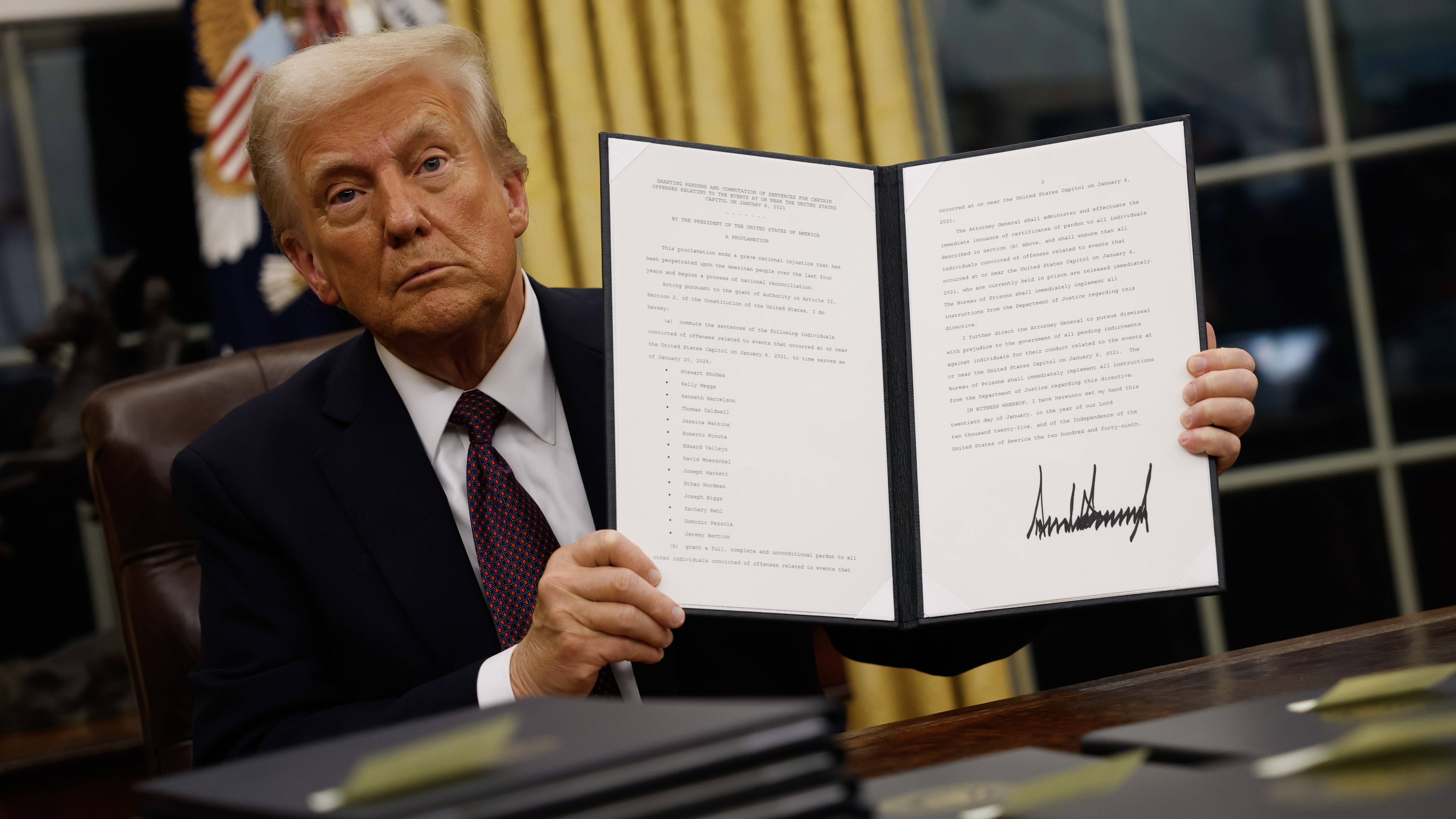New US administration begins purging US government websites, President Trump says 'it doesn't sound like a bad idea to me'
This follows several executive orders taking aim at DEI policies and "gender ideology."

Keep up to date with the most important stories and the best deals, as picked by the PC Gamer team.
You are now subscribed
Your newsletter sign-up was successful
Want to add more newsletters?

Every Friday
GamesRadar+
Your weekly update on everything you could ever want to know about the games you already love, games we know you're going to love in the near future, and tales from the communities that surround them.

Every Thursday
GTA 6 O'clock
Our special GTA 6 newsletter, with breaking news, insider info, and rumor analysis from the award-winning GTA 6 O'clock experts.

Every Friday
Knowledge
From the creators of Edge: A weekly videogame industry newsletter with analysis from expert writers, guidance from professionals, and insight into what's on the horizon.

Every Thursday
The Setup
Hardware nerds unite, sign up to our free tech newsletter for a weekly digest of the hottest new tech, the latest gadgets on the test bench, and much more.

Every Wednesday
Switch 2 Spotlight
Sign up to our new Switch 2 newsletter, where we bring you the latest talking points on Nintendo's new console each week, bring you up to date on the news, and recommend what games to play.

Every Saturday
The Watchlist
Subscribe for a weekly digest of the movie and TV news that matters, direct to your inbox. From first-look trailers, interviews, reviews and explainers, we've got you covered.

Once a month
SFX
Get sneak previews, exclusive competitions and details of special events each month!
The current US administration has begun a purge of existing US government websites, with resources including USAID.gov, ForeignAssistance.gov, HealthData.gov, GoodJobs.gov, and ChildrenInAdversity.gov. Reuters reported that this follows various of President Donald Trump's executive orders targeting diversity, equity and inclusion (DEI) policies, and a memo circulated to government departments last Wednesday ordering federal agencies to "take down all outward facing media (websites, social media accounts, etc.) that inculcate or promote gender ideology."
A deadline had been set for 5 pm ET last Friday, January 31, for removal of this material. Asked if government websites would be closed while such action was taken, President Trump told reporters, "I don't know. It doesn't sound like a bad idea to me. I think DEI is dead, so [if] they want to scrub the websites, that's OK with me."
Trump's targeting of government DEI initiatives has been popular among his supporters, while rights advocates say the administration is undoing decades of work in combating discrimination. This particular move follows various government websites disappearing since the new administration took power, examples being ReproductiveRights.gov, which provided information on reproductive health care and sexual health, TargetHIV, which provided information on the disease, and Youth.gov, a site focused on youth aid programs.
"Decades worth of taxpayer-funded reports and analysis gone in an instant," a USAID staffer told Wired, adding that some employees were trying to archive material while others had been locked out of the system entirely. "We have no idea what is happening behind the scenes or what will be back, when, and in what form." USAID focuses on overseas humanitarian aid and public health initiatives, and has fallen foul of another Trump executive order reviewing "all foreign assistance programs to ensure they are efficient and consistent with US foreign policy under the America First agenda."
This follows federal agencies being given 60 days to eliminate DEI-focused job roles and programs, alongside which federal employees have been ordered to use certain language (such as "sex" instead of "gender") and remove pronouns from email signatures.
The website 404 Media has focused on data.gov, a repository of US government open data, which it says has lost over 2,000 datasets since Trump's inauguration. What is particularly notable about this example is how targeted it is in places: The datasets being targeted in this way are overwhelmingly ones linked to the Department of Energy, the National Oceanic and Atmospheric Administration, the Department of the Interior, NASA, and the Environmental Protection Agency.
But it's too early to say anything definitive about what's truly being scrubbed for political reasons, with 404 paraphrasing archivists working on analysing the material as saying that "while some of the deletions are surely malicious information scrubbing, some are likely routine artifacts of an administration change, and they are working to determine which is which."
Keep up to date with the most important stories and the best deals, as picked by the PC Gamer team.
"I assume some of those datasets in data.gov have bad urls to old agency pages that no longer exist," says James Jacobs, a Stanford Libraries researcher. "Some of it is probably link rot and content drift and some of it is no doubt Trump admin policy driven (e.g. anything having to do with DEI)."
A collaborative project called the End of Term Web Archive has been preserving US government websites before each new administration since 2008, and continues that mission during this transition. The need for such an archive highlights one of the biggest problems of our new technological era, that the internet is stuffed with information, but it has a habit of disappearing or being overwritten, whether for political reasons or otherwise—software and games are prone to copyright limbo or just being lost to time. Organizations like Internet Archive, an End of Term Web Archive collaborator, are thus valuable to archivists, historians, reporters, and anyone who wants to play an abandoned DOS game.But then the Internet Archive was also recently hit with a copyright lawsuit.
The politics of all this aside, it does seem that the Trump administration is throwing the baby out with the bathwater. It frankly seems madness to make it harder for Americans to access information about diseases like HIV or reproductive health care, and who really thinks targeting youth aid programs is a good idea?
We can say for sure that the Trump administration is making previously public information and government data either harder to access, or removing it from the internet entirely. But this is happening so quickly and on such a scale in terms of volume of information that it is hard to say right now exactly what is gone, what's been preserved, and what is just normal entropy.

Rich is a games journalist with 15 years' experience, beginning his career on Edge magazine before working for a wide range of outlets, including Ars Technica, Eurogamer, GamesRadar+, Gamespot, the Guardian, IGN, the New Statesman, Polygon, and Vice. He was the editor of Kotaku UK, the UK arm of Kotaku, for three years before joining PC Gamer. He is the author of a Brief History of Video Games, a full history of the medium, which the Midwest Book Review described as "[a] must-read for serious minded game historians and curious video game connoisseurs alike."

